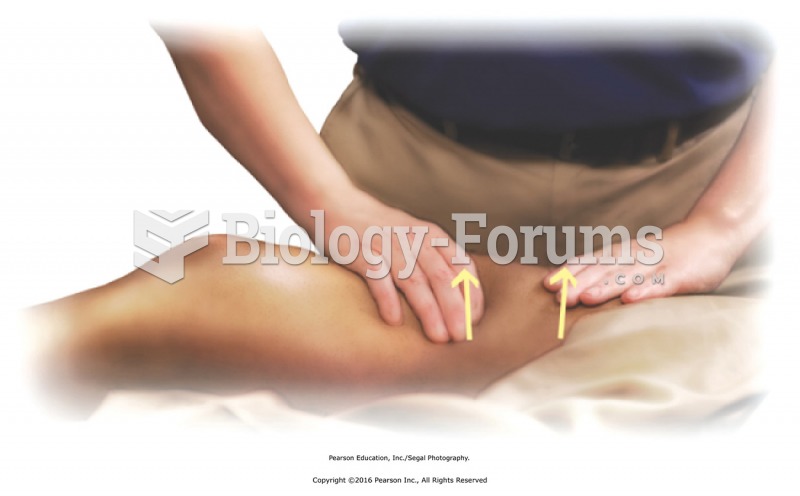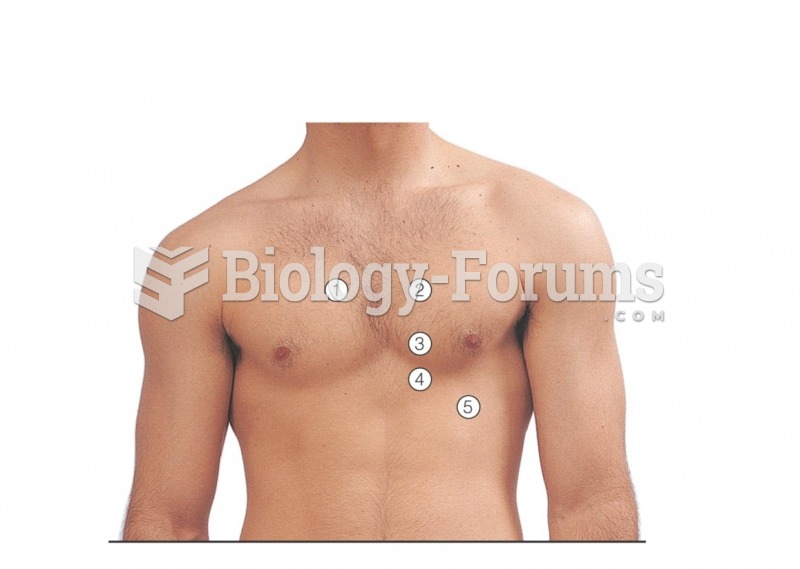|
|
|
Most childhood vaccines are 90–99% effective in preventing disease. Side effects are rarely serious.
Hyperthyroidism leads to an increased rate of metabolism and affects about 1% of women but only 0.1% of men. For most people, this increased metabolic rate causes the thyroid gland to become enlarged (known as a goiter).
The immune system needs 9.5 hours of sleep in total darkness to recharge completely.
The cure for trichomoniasis is easy as long as the patient does not drink alcoholic beverages for 24 hours. Just a single dose of medication is needed to rid the body of the disease. However, without proper precautions, an individual may contract the disease repeatedly. In fact, most people develop trichomoniasis again within three months of their last treatment.
Hip fractures are the most serious consequences of osteoporosis. The incidence of hip fractures increases with each decade among patients in their 60s to patients in their 90s for both women and men of all populations. Men and women older than 80 years of age show the highest incidence of hip fractures.
 Pneumonia. This common lung inflammation may be caused by bacteria, viruses, or fungi and is often d
Pneumonia. This common lung inflammation may be caused by bacteria, viruses, or fungi and is often d
 Horizontal stroking of the abdomen. Place a hand on either side of the waist, fingers pointing away ...
Horizontal stroking of the abdomen. Place a hand on either side of the waist, fingers pointing away ...





